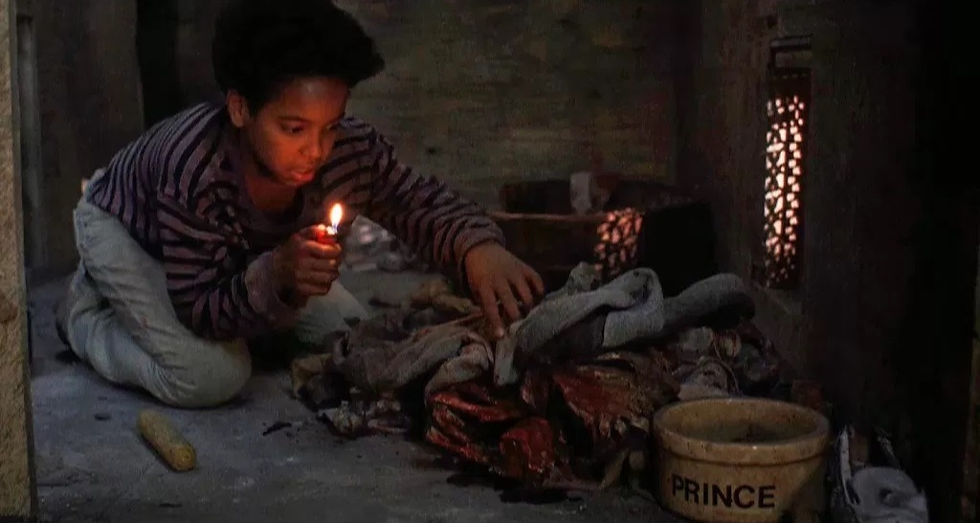'Bodies Bodies Bodies' Skewers the Wrong Group
- Cameron Tennyson

- Aug 19, 2022
- 4 min read
Get Out’s reinvention of the horror genre is one of the best things to happen during the last decade of filmmaking. The industry used to dole out generic slasher after slasher (The Bye Bye Man), generic paranormal slog after paranormal slog, (any Paranormal Activity besides the original) and generic gore fest after gore fest (Saw 3 up to – whatever they’re at now). It was exhausting seeing the same movie with different names, and most felt like a pure cash grab. Then Jordan Peele came out of left field and saved the genre when Get Out not only received critical acclaim (and an Oscar), but reaped immense financial success as well.

Since then, countless horror films have added in a twist of social commentary (not to say it wasn’t there before, but it’s safe to social horror is more prominent now), and although most haven’t reached the heights of Get Out, it’s refreshing to see so many horror films at least try to add in some element of broader societal analysis. In Bodies Bodies Bodies, director Halina Reijn and writer Sarah DeLappe try their hands at crafting a timely, quippy slasher about a group of 20-somethings whose weekend is thrown off course when their friend is seemingly murdered, but, unfortunately, the film doesn’t ever prove itself to be anything more than just okay.
Bodies Bodies Bodies begins with Sophie and Bee (played by Amandla Stenberg and Maria Bakalova respectively) who are traveling to Bee’s friend's house for a hurricane party. An awkward introduction and obvious Chekhov's gun later, the group of friends decides to play the titular fake-murder game Bodies Bodies Bodies. When one of their friends ends up actually dead, the movie turns into a whodunnit. Everyone has massive trust issues – these are Zoomers, so of course they do. It’s a decent enough setup for what could be a great time, but the movie doesn’t elevate filmmaking tropes nor present any perspective on our generation that hasn’t been done before.

Bodies Bodies Bodies doesn’t have any specific component that makes it stand out. It advertises itself as a horror comedy, but it’s neither all that scary nor all that funny. The camera work replicates any other lights-out slasher flicks – a shaky cam scours dimly lit rooms while the music builds and builds until the inevitable jump scare. There wasn’t a single moment that made me hide my eyes behind my hands or even squirm in my seat. Men’s visceral abstractness made me uncomfortable. Nope terrified me with its sound design. During Bodies Bodies Bodies, the only time my heart raced was when Lee Pace showed up on the screen. The acting was easily the best part of the film, but the characters were so annoying that I just wanted everyone to shut up or die.
I can deal with a decent slasher that has a couple of jump scares, but it’s the film's commentary on the millennial and zoomer generations that rubs me the wrong way.

Millennials and zoomers get a lot of hate. There’s a whole genre of articles about how millennials “ruined” or “killed” certain things. Sometimes it’s whole industries, like the jewelry and diamond industries because we aren’t getting married anymore. We got blamed for killing the housing market because we insist on living in apartments or renting out rooms instead of buying four-bedroom houses. I even read an article that said it was our fault that mayonnaise was dying out, because apparently our generation cares about health way more than flavor, so we’re always going to look for the healthier alternative.
The issue with these articles (and the generations that read them and parrot their talking points) is that they forget to mention that millennials and zoomers have been flat-out screwed by the mistakes of previous generations, and that we are just the product of a society that was created for us. No other generation had to grow up with the internet. The tool is both a blessing and a curse for many reasons, but it’s no doubt massively detrimental to developing minds in many ways. No other generation was faced with an economic crisis like us; we’re being crushed beneath the weight of capitalistic greed, ridiculous costs for basic education, and impossible rates for simple living. I could go on and on – climate change, rising fascism, gun violence, etc., etc., etc. We have been set up for failure, and those people who rigged the game against us are apathetic about our situation, so it’s always disheartening to me when someone from our own generation creates something that mimics that apathetic viewpoint. Bodies Bodies Bodies does exactly that.

Perhaps it’s unfair to fault this film for acting the same way nearly all other media does toward young people, but it would be nice to see a little bit of empathy every once in a while. The film mocks the usage of words like “triggers,” “gaslighting,” “victim blaming,” and more in the same way the alt-right does when they troll a feminist on Twitter. I understand that the film is satirizing the privileged class, and specifically the rich and out-of-touch zoomers, but the final sentiment is just too indifferent for my liking. The final twist sinks that blade in a little deeper. Bodies Bodies Bodies isn’t a terrible film, but you’d have much more fun playing your own party games.
-Cameron



Comments